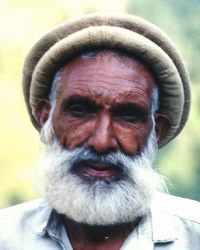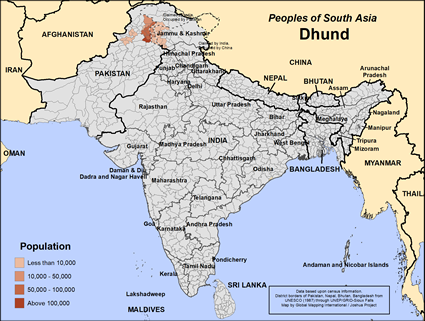Dhund in Pakistan

Photo Source:
Galen Frysinger
|

Map Source:
People Group data: Omid. Map geography: UNESCO / GMI. Map Design: Joshua Project.
|
| People Name: | Dhund |
| Country: | Pakistan |
| 10/40 Window: | Yes |
| Population: | 752,000 |
| World Population: | 762,000 |
| Primary Language: | Hindko, Northern |
| Primary Religion: | Islam |
| Christian Adherents: | 0.00 % |
| Evangelicals: | 0.00 % |
| Scripture: | New Testament |
| Ministry Resources: | No |
| Jesus Film: | Yes |
| Audio Recordings: | Yes |
| People Cluster: | South Asia Muslim - other |
| Affinity Bloc: | South Asian Peoples |
| Progress Level: |
|
Introduction
Most likely the Dhund Abbasi came to ancient Pakistan from Egypt around 850 AD, as traders and merchants in commodities. They are probably descended from the Abbasid dynasty that governed for 500 years from Baghdad, Iraq. The rule of the Abbasi extended eastwards across Afghanistan into the South Asian subcontinent, covering the eastern part of modern-day Pakistan. A conflicting account, which may have little credibility, states that the Dhund Abbasi are descendants of Abbas, an uncle of the prophet Mohammad.
Ministry Obstacles
Northern Pakistan, where the Dhund reside, is especially resistant to the claims of Christ. Spiritual opposition is strong in addition to the fierce opposition from men who have closed their hearts to the life-giving gospel.
Outreach Ideas
Pray for the Followers of Christ
Pray for the Entire People Group
Pray that the Lord will be present in the Dhund's lives in powerful ways, shining a light through much of the darkness and pain present in Pakistan.
Pray for the brave Pakistani Christians, for their protection and opportunities to spread the message of Jesus to those around them.
Pray for Christians to make intentional disciples of members of the Dhund community.